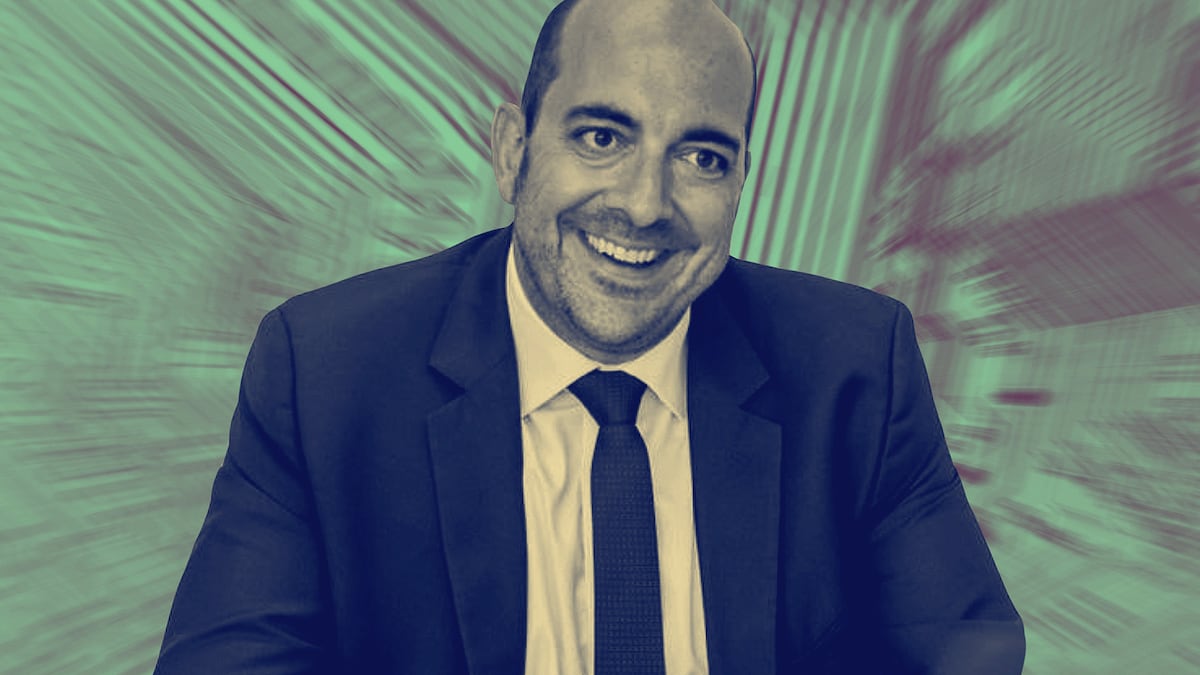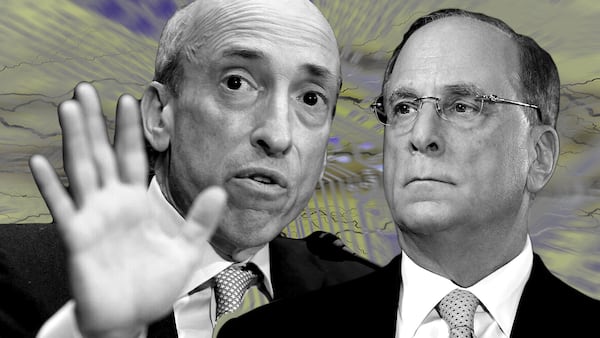- Mathieu Michel, Belgium’s state secretary for digitalisation, has taken the lead on Europe’s blockchain infrastructure ambitions.
- Michel said he hopes to replicate the Ethereum network. He calls the plan “Europeum.”
- Six countries signed on: Slovenia, Portugal, Croatia, Italy, Poland, and Belgium, with Brussels as its headquarters.
- Important for citizens is privacy, transparency and “the way we work with your data.”
Belgium is betting that a transnational blockchain infrastructure will soon be adopted by the 27 member states of the European Union.
The small and often overlooked nation will lead a push for an EU-wide network where public services would be integrated with a distributed ledger.
Game Changer
Mathieu Michel, Belgium’s state secretary for digitalisation, is confident that blockchain will not only benefit consumers and companies, but also bolster the bloc’s global competitiveness.
“It’s a real game-changer, what we’re building right now,” Michel told DL News in his Brussels office.
NOW READ: Kraken’s order to give IRS user info could have been much worse: ‘It would expose clients’
For all the challenges about adoption of blockchain on a mass market level, the state secretary said he believes the technology can change the way European citizens and companies control their data.
Taking the lead
The European Union recently announced that it would transform the five-year-old European Blockchain Services Infrastructure project into a political endeavour led by member states.
Belgium raised its hand to take the lead, and Michel signed the application to the European Commission.
‘Europeum is built for our digital sovereignty, but also for our autonomous strategy’
— Mathieu Michel
Essentially, Michel hopes to replicate the Ethereum network, with code that’s open to view. This version, however, would be a version that is not permissionless but “managed, developed and regulated by governments.” He calls the plan “Europeum.”
A political project
Six countries have signed on to Europe’s blockchain consortium: Slovenia, Portugal, Croatia, Italy, Poland, with Brussels, the EU’s capital, as its headquarters.
In January, Belgium is scheduled to take over the European Council’s six-month rotating presidency. Blockchain is high on the agenda for the state secretary.
“I think that even before the end of the year, we will have other countries joining, probably even before the end of the summer,” Michel said. “Europe could go further if everybody looked in the same direction.”
This year, each country is to invest €50,000 in the blockchain project. Next year, that sum will double. All together, the bare-bone budget adds up to just under €1 million for the coming year and a half.
For Michel, one million is not enough, but it’s a start. He is hopeful seeing as Belgium, he says, has a €1 billion yearly budget for digitalising its economy and administration. Blockchain could help streamline the digitalisation process, he said.
Credibility
Belgium ranked at the bottom of the European Commission’s annual Digital Economy and Society Index report in 2022, which Michel deemed “unacceptable.”
“If we want to restore our credibility and boost our foreign investments, we must react quickly,” Michel previously responded to the news.
NOW READ: Investors pull $4bn from Binance as regulators and rivals close in
Michel hopes that by the end of next year, every European Union member state will be working on the blockchain infrastructure project.
In full capacity, legal administration for companies would be simplified into smart contracts where data can be seamlessly transferred between states.
Verified profiles
Property titles and driving licences would be verified on the blockchain. So would national identities which could then be used to easily verify your profile on social media.
“A country like Belgium is too weak if we want to be more ambitious at a global level,” he said. “Working together at a European level is the least that we can do to build our ambition. Europeum is built for our digital sovereignty, but also for our autonomous strategy.”
‘Cryptocurrency is not currency. It’s like Pokémon’
— Mathieu Michel
Belgium has already figured out part of their logistics for EBSI. Belnet, the national internet provider for government services and educational institutions, will operate the node on the network. Howest University of Applied Sciences is also a key player developing solutions for the project.
Blockchain, not crypto
As he took office in 2021, Michel experimented with crypto and NFTs to figure out what the hype was all about. While he was enchanted with the possibilities blockchain offers, he was not impressed with crypto as an industry.
“Cryptocurrency is not currency. All those scandals are probably linked to the fact that people think that it’s currency,” Michel said. “But no, it’s like Pokémon.”
Crypto’s reputation makes it difficult to convince some colleagues that Europe should bet big on blockchain.
NOW READ: Investors pull $4bn from Binance as regulators and rivals close in
“If I mention blockchain to some of my political colleagues in parliament or in the government, they will say: ‘Oh, there’s the devil.’ Because for some people, blockchain and cryptocurrency are the same.”
For him, the main challenge is to level up “the maturity, the comprehension about blockchain.”
Data ownership
Important for citizens is privacy, transparency, and “the way we work with your data,” he said.
For Michel, the decentralised technology can be a tool to tilt data ownership into the hands of citizens rather than companies or institutions.”Today, nearly nobody can say what happens with their data,” he added.
Across the bloc
Companies could also be relieved from the EU’s administrative machinery as they operate across the bloc.
“A law can become a smart contract, so you can automatically adapt the smart contract to the country,” Michel said, which would allow SMEs to automate transitions between jurisdictions. They can simply “identify themselves as European.”





